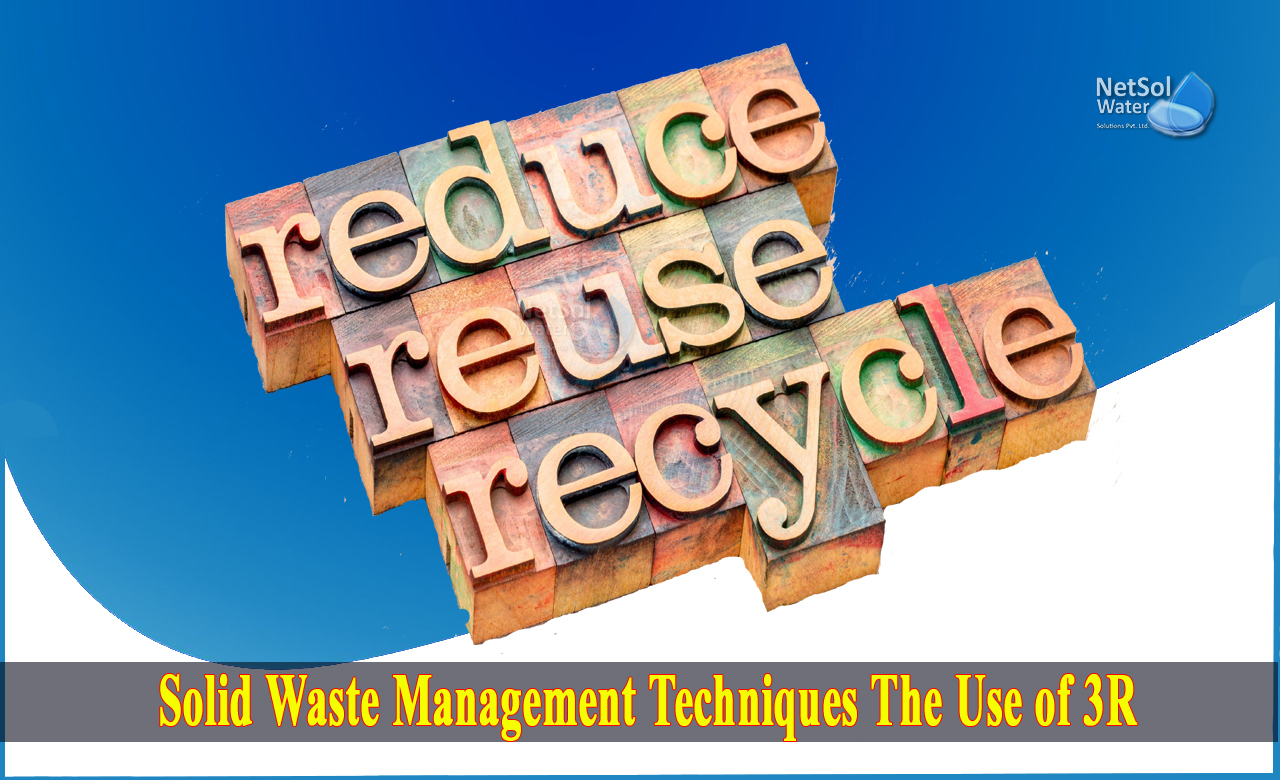What is the use of 3R in Solid Waste Management Techniques?
With the country's growing population, municipal solid waste management (MSWM) has become a burden, not only due to environmental and aesthetic considerations, but also due to the massive amounts of municipal solid waste (MSW) generated every day.It is estimated that metropolitan India produces between 1,30,000 and 1,50,000 metric tonnes of waste every year. Solid garbage every day per urban resident is about 330-550 gram. This adds up to almost 50 million MT every year. By 2031, this will have increased to almost about 125 million MT.
What could be the possible solution?
The application of 3R’s or reduction, reuse, and recycling can be applied for solid waste management now-a-days. But, before moving to solutions, let us have a look on the problems;
1: Use of open-dumps
In most underdeveloped countries, open, unregulated dumps remain the primary method of waste disposal.Although most developed countries prohibit open dumping, illegal dumping continues to be a concern.Large levels of harmful chemicals have been found in the drinking water as a result of illegal dumping.
2: Polluting oceans
Millions of tonnes of waste are dumped in the ocean every year. Many cities poured municipal garbage, industrial waste and sewage into the ocean until recently. Some say that dumping human waste in the deep ocean is the most stable and inoffensive option. Others believe that we don't know enough about the significance of these distant locations or the unique species that call them home, to suffocate them with muck and rubbish.This practice is now prohibited by federal law.
3: Exporting Waste
The majority of countries now have pledged to stop transferring hazardous waste to developing ones. In certain locations, the practise persists illegally and with hazardous repercussions.
When you have problems, you find Solutions!
1: Resource recovery and incineration
Energy recovery refers to the process of burning waste to generate heat, which is then transformed into energy and power. Before being burned, solid waste is sorted into burnable, non-burnable, and recyclable categories in some municipal incinerators.
2: Reducing the waste stream
It goes without saying that having less waste to dispose of is preferable to struggling with disposal methods.
3: Recycling
There are two types of recycling. It can refer to either using something as it is or repurposing it into useful things.Rather than dumping or burning, recycling is a preferable option. It decreases pollutants while saving money, energy, raw materials, and land space.
4: Composting
Composting is the process of microbes breaking down organic yard waste into a nutrient-rich soil additive.Compost piles are a simple, low-cost, and environmentally friendly way to get rid of organic waste.Bacteria may break down organic waste to produce methane, which can be used to generate energy. This gas can be used a source of energy.
5: De-manufacturing
The disassembly and recycling of outmoded consumer products such as televisions, computers and air conditioners is known as de-manufacturing.This allows valuable and harmful materials to be reclaimed before they are released into the environment.
6: Reuse
The greatest way to dispose of waste is to reuse it. Cleaning and reusing materials in their current state saves energy as well as money.
Conclusion
In industrial civilizations, large amounts of solid waste are produced and disposing it of is becoming increasingly difficult. Many solid wastes are non-toxic wastes generated in the home, business, industry, agriculture, and mining.There are a variety of solid waste disposal options, including landfills and incineration, each with its own set of issues.When hazardous and toxic wastes are released into the environment, they can lead to a variety of health issues, including cancer and birth defects.Hazardous waste disposal techniques have frequently been inadequate. Government regulation and alternative disposal procedures are paving the way for safer, more effective solutions to this growing challenge.
Netsol Water, as a sustainable solution provider, we are concerned about Environmental remediation and solid waste management in India. Thus, we provide a complete variety of standard and fully configurable solid waste management systems as well as their comprehensive maintenance. Choosing a trained, accredited, and experienced SWM specialist will considerably boost your chances of long-term satisfaction with your overall system. We have over 10 years of experience custom-designing and manufacturing wastewater treatment plants, water treatment plants, SWM systems, among other services.



